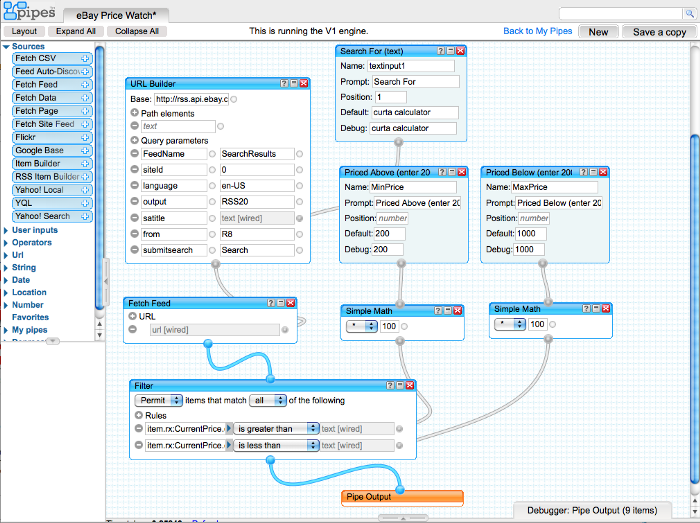It’s funny how old methodologies can suddenly return to relevance within my strategic tool-kit.
Back in 2008, I used a tool called Yahoo Pipes to find and aggregate eye-witness accounts of breaking news stories for the BBC. The system created searches from keywords extracted from articles – for example, “explosion” or “bomb”, and plugged them into a scan of social media.
A year later I found myself using another tool, created by Paolo Valdemarin and his team at eVectors, for aggregation and curation of content around COP15.
Fast forward a dozen or so years and I’m again creating aggregations for clients. This is because there’s a limit to how much any individual or organisation has to say that is genuinely original or interesting.
By curating content – that is, pulling it together and structuring it with tags or categories, and perhaps adding some analysis or highlighting links between articles or viewpoints – it’s possible to create something that’s both useful and unique for audiences.
At Hume Brophy, we’re now doing exactly this with an industry association for whom we’re tracking policy related content, for an association of associations where we’re surfacing “from the ground” examples of our key talking points, and for a professional services firm where a deep awareness of industry debates is essential both to their work and the way they communicate their offer to clients.
Finding a tool to do this has been challenging. RSS is no longer ubiquitous as it once was – I can’t recall when I last used an RSS reader – with many sites, including the likes of Twitter, shutting down their feeds. But I have found a tool, Rss.app, that does a reasonable job of pulling in and filtering RSS feeds as well as turning scraped pages into feeds so that they can be added to the mix. We’re feeding this with content from a whitelist of sources (think tanks, media, etc) as well as a feed from Meltwater, our monitoring tool.
We’re presently testing the use of IFTTT to turn email newsletters into content RSS.app can aggregate. We’re also working on a WordPress implementation that ingests our RSS feed and then generates database records for each content item so that we can generate topical index pages that are searchable.
For me, it’s been kind of fun making use of one of my old tricks again but it’s also made me realise that the tool sets haven’t necessarily continued to develop. It’s also made me more than a little sad about RSS falling out of favour for so many websites and services.
[Yahoo! Pipes Screengrab – Credit Pedro Valente ]
